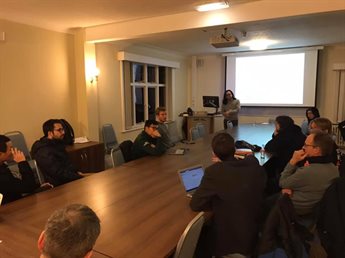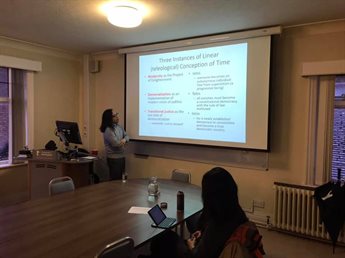The Taiwan Studies Programme (TSP) and The Centre for the Study of Social and Global Justice (CSSGJ) are delighted a to announce a seminar by Anthony Hao Yeh, Associate Professor in political thought at the Department of Political Science, National Chengchi University. He will talk on Politics of Temporalities and Taiwan’s Pursuit of Transitional Justice in the Context of East Asian History.
Biography
Anthony Yeh completed his first degree at Edinburgh and earned his M.Sc. in philosophy and Ph.D. in political science from LSE. He is an Associate Professor in political thought at the Department of Political Science, National Chengchi University in Taipei. And he also teaches philosophy and international relations at National Taiwan Normal University and National Tsinghua University respectively. In the academic year of 2015-16, he was a TUSA Visiting Fellow at the Department of East Asian Languages and Civilizations, Harvard University. Apart from his academic duties, he currently co-organizes a popular salon known as “Café Philo” and hosts a weekly TV programme “Philosophy Lite.” Meanwhile, he serves as an advisor to the Transitional Justice Committee in Taiwan.
His publications include a monograph on Isaiah Berlin, and numerous articles on issues related to Arendt, Nietzsche, politics of memory, transitional justice, and international justice. And he is now working on a book project theorising Taiwan’s pursuit of transitional justice in the context of East Asian international politics.
Abstract
Transitional justice has always been a thorny issue in Taiwan, and even more so since the institution of the Transitional Justice Committee last year, which at once generated resentment from the opponents and raised expectations so high among proponents that some of them have lost patience while the rest have started to quarrel with each other over whether Taiwan should emulate the model of South Africa’s Truth and Reconciliation Commission or that of the lustration policies found in the East-Central Europe. And what is absent from the scene are serious discussions concerning the theoretical and practical basis of transitional justice, in particular what sort of ‘justice’ to be pursued or ‘injustice’ to be redressed.
The purpose of my presentation is, first of all, meant to offer an explanation of why this is the case, by way of analyzing the related discourses found in the public statements made by major political parties and NGOs as well as scholarly writings devoted to the issue. And this situation will be understood as ‘a Politics of Différance’ because it not only involves many different collective memories and conflicting understandings of the past, the present and the future, but also entails difficulties due to the fact that the best time to address the issue of injustice has past. With this factual analysis in place, therefore, it will move on to analyse the normative dimension of these debates, so as to reveal the many different ideas of ‘injustice’ that operate in these related discourses, historiographies and visions of the future. And it will be shown that the crux of the matter lies in the fact that what counts as ‘historical justice’ in the end cannot be separated from the broader framework of understanding of the history of East Asia back to the age of European imperialism in the 19th century. Finally, a politics of compromises is recommended to be the first step out of the politics of différance. And some other possible ways to restore a common political time as well as a common sense of reality will be explored.
Talk reflection
by Tobias Ross PhD Candidate, School of Politics and International Relations
I really enjoyed TSP’s talk by Dr Anthony Yeh on 'Transitional Justice in Taiwan'. Combining theory with examples from Taiwan's current social and political debate, this in-depth talk gave me a better understanding of the issue in general and specific to Taiwan. Having no background in this field, Dr Yeh really made me think about the issues related to it and do some own further readings.

